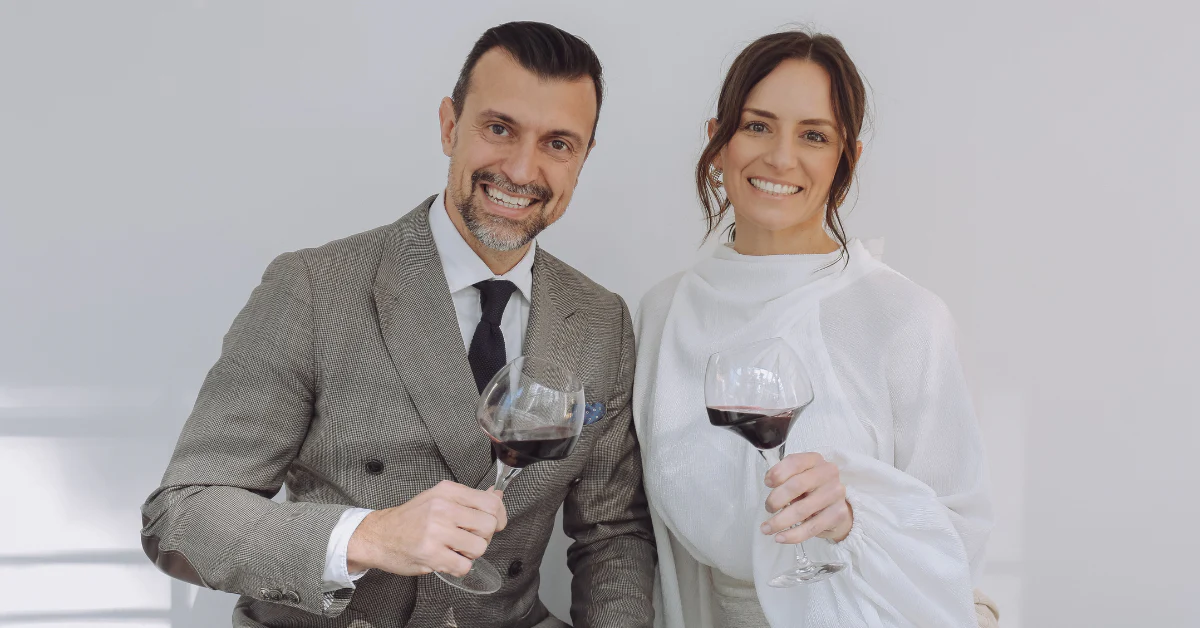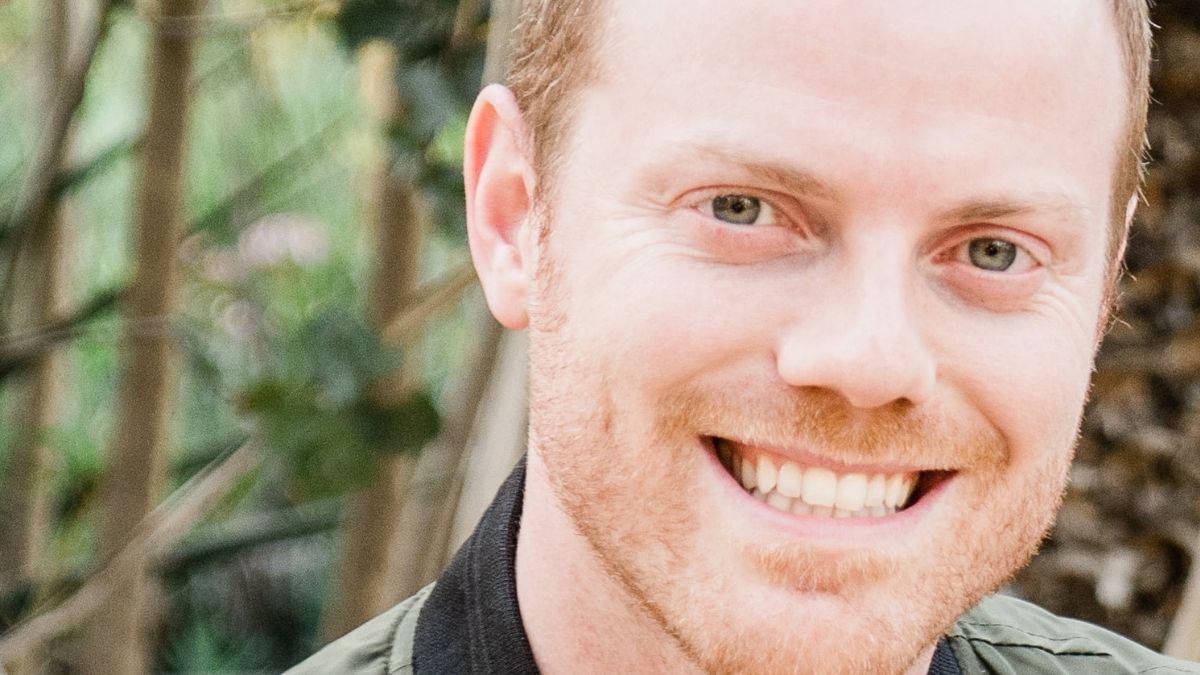Uncorking Your Growth: The Marketing Secrets Every Passionate Founder Needs to Know
There is a moment in every entrepreneur's life that is pure, unadulterated excitement. It's the moment you know, deep in your bones, that you are on to a great idea. The passion is there. The vision is clear. The energy is boundless.
And then comes the question that can feel like hitting a brick wall: "Okay... now how do I find my customers?"
You look at the marketing landscape and it is a dizzying, overwhelming maze of options. Should you be on TikTok? Do you need to invest thousands in Google Ads? What about SEO? Influencers? Email marketing? Public relations? It's enough to make even the most confident founder feel lost and paralyzed.
This very challenge was at the centre of one of the most energetic and fun conversations I've had on my podcast. I had the pleasure of speaking with Joanne, a founder whose passion for her new wine venture was so infectious you could feel it through the microphone. She has the great idea, but she needed the strategic insight to understand which marketing channels would be most effective for her.
Our conversation became a rapid-fire strategy session, where I was able to share some of my favourite "silver bullet" ideas—the practical, often low-cost strategies that can create outsized results. We talked about the critical importance of building assets you own and fostering real, human relationships with the people who buy from you.
Today, inspired by Joanne's fantastic energy, I want to give you my definitive guide to cutting through the marketing noise and focusing on what truly works.
The Myth of the Magic Channel - Strategy Before Tactics
Before we dive into any specific channels, we must start with a foundational truth: There is no single "best" marketing channel. The channel that works wonders for a B2B software company will be a complete waste of money for a direct-to-consumer wine business.
The most common mistake I see founders make is jumping straight to tactics ("I need to be on Instagram!") without first having a strategy. Your marketing strategy is built on the answers to two simple, profound questions:
- WHO are you talking to? Who is your ideal customer? And I mean really who. Not just "women aged 25-50." Is it a busy professional woman who wants a curated, high-quality wine experience delivered to her door? Is it a young, adventurous couple looking to discover unique, small-batch wineries? The more specific you are, the easier it becomes to find them.
- WHAT is your unique story? What makes your wine business different from the thousands of other options out there? Is it your focus on sustainable wineries? Your brilliant food pairing guides? Your personal story and passion? Your unique value proposition is the heart of your message.
Only once you are crystal clear on your "who" and your "what" can you begin to think about the "where" and "how." Otherwise, you are just shouting into the void.
The Most Powerful Asset You'll Ever Build - Your Owned Media Channels
This was a key piece of advice I gave Joanne, and it is perhaps the most important marketing lesson for any founder today. You must relentlessly focus on building media channels that you own.
What do I mean by this? Think about Facebook, Instagram, TikTok, or Google. You don't own your presence on these platforms. You are building your business on rented land. Mark Zuckerberg or the engineers at Google can change the algorithm overnight, and your reach, your traffic, your entire business can be decimated. They can increase ad prices. They can suspend your account without warning. You are not in control.
An "owned" media channel is an asset where you have a direct, unfiltered line of communication to your audience. You control the platform, the message, and the relationship.
There are two primary owned assets every business must build:
1. Your Website/Blog: This is your digital home base. It's the one place on the internet that is 100% yours. It should be the central hub for your brand story, your product information, and your valuable content.
2. Your Email List: This is the single most valuable marketing asset you will ever build. It is more important than your social media following. An email list is a direct, personal line to a group of people who have explicitly raised their hand and said, "Yes, I want to hear from you." You can't be de-platformed from your own email list.
How to build it? You don't just ask people to "sign up for our newsletter." You must offer them something of immense value in exchange for their precious email address. For a wine business like Joanne's, this could be:
- "The Ultimate Food and Wine Pairing Guide" (a beautiful PDF download).
- "A 5-Day Mini-Course on How to Taste Wine Like a Pro."
- "Get Our Guide to the 10 Best Hidden Gem Wineries in the Yarra Valley."
Your focus on owned media shifts you from being a renter to being an owner. It is the foundation of a resilient, long-term business.
Beyond the Transaction - Building Real, Human Relationships
The second "silver bullet" we discussed is the secret weapon that a small, passionate founder will always have over a large, faceless corporation: the ability to build genuine human relationships.
In a world of automated chatbots and impersonal transactions, people are craving connection. They want to buy from people they know, like, and trust. Your marketing should be optimized for relationship-building.
- Personalise Your Communication: Go beyond just using their first name in an email. Use the data you have to make them feel seen. If a customer has consistently bought your Pinot Noir, send them a personal email when a new, special vintage arrives. "Hi Sarah, I know how much you love our Pinot, and I just had to tell you about this incredible new one we've sourced. I thought of you immediately." This is not something a massive retailer can do at scale.
- Create a Community, Not Just a Customer List: Turn your customers into members of a club. For Joanne, a "Wine Club" could be so much more than a monthly subscription box. It could be a true community. Host exclusive monthly "virtual tastings" on Zoom with the winemaker. Create a private Facebook group where members can share their own tasting notes and food pairings. Make them feel like insiders, like part of the story.
- The Power of Unexpected Delight: Look for small, low-cost ways to create a "wow" moment. Include a handwritten thank-you note in the first order. If a customer mentions it's their anniversary, send them a quick personal video message wishing them well. When I was building RedBalloon, these personal touches were everything. They are what people remember and, more importantly, what they tell their friends about.
The "Silver Bullets" - Smart, Cost-Effective Tactics for Growth
Once you have your strategy, your owned media foundation, and your commitment to relationships, you can start layering on smart, cost-effective marketing tactics. Here are a few I shared with Joanne:
1. The Collaboration Engine:
This is my favourite strategy for early-stage businesses. Find other non-competing businesses that serve your exact same ideal customer. For a wine business, this is a goldmine.
- Partner with a local cheesemonger to create a "Perfect Pairing" box.
- Team up with a high-end butcher to co-host a "Steak and Shiraz" tasting event.
- Work with a travel blogger who focuses on food and wine tourism.
- Collaborate with a local artist to design a unique wine label for a limited edition run.
Each of these partnerships gives you warm, trusted access to a whole new audience of perfect potential customers for a fraction of the cost of traditional advertising.
2. Turn Your Customers into Your Marketing Department:
Systematically encourage and reward user-generated content (UGC).
- Run a monthly contest for the best photo of your customers enjoying your wine. Create a unique hashtag (e.g., #WinningWithJoannesWine).
- The prize doesn't have to be big—a free bottle of wine or a gift voucher is plenty.
- Feature the winners on your social media and email newsletter. This provides you with a constant stream of authentic, powerful marketing content and makes your customers feel celebrated.
3. PR Through Storytelling:
Instead of sending out a press release about your new wine, pitch the story of you. Why did you start this business? What is your mission? What is your unique philosophy on wine? Journalists and podcasters are not interested in products; they are interested in passionate people with compelling stories. Your personal story is your greatest PR asset.
A Conversation Bubbling with Ideas
Our full conversation on the podcast was like opening a bottle of champagne—full of energy, excitement, and ideas bubbling to the surface. We took Joanne's fantastic passion and started to pour it into a strategic, actionable marketing plan. To hear the "aha" moments as we workshopped these ideas in real-time is a powerful lesson for any founder trying to figure out their next move.
Marketing is a Relationship, Not a Megaphone
In the end, great marketing is not about having the biggest budget or shouting the loudest. It's about building a genuine connection with a specific group of people who need what you have to offer.
It’s about building your foundation on assets you own and control. It's about treating your customers like cherished members of a community. And it's about using smart, collaborative tactics to tell your story and share your passion with the world.
Stop chasing every shiny new marketing trend. Get back to basics. Build your owned channels. Foster real relationships. And let your authentic passion be the magnetic force that draws your tribe to you.
What is the single most effective marketing channel or strategy that has worked for your business?
Frequently Asked Questions on Winning with Wine
1. What does the 'Winning with Wine' concept teach about building a premium brand?
The 'Winning with Wine' concept teaches that building a premium brand is not about being the cheapest; it's about establishing unassailable quality, authenticity, and narrative. A premium brand wins by investing in the core product's excellence, controlling the end-to-end customer experience, and successfully communicating its unique story and heritage, thereby justifying a higher price point based on perceived and delivered value.
2. How is the experience industry similar to the wine industry in terms of selling value?
The experience industry is highly similar to the wine industry because both sell value based on emotion, story, and memory, rather than just physical commodity. In both cases, the customer is buying an anticipation, a moment, or a memory, not just a product. Success lies in managing the customer's expectation and ensuring the experience itself (the sip of wine or the hot air balloon ride) flawlessly delivers on the premium promise.
3. What is the role of the founder's passion in creating a wine brand's enduring authority?
The founder's passion is vital for establishing the brand's authenticity and emotional narrative. In a market saturated with options, the founder's personal story, commitment to the craft, and unique expertise (E-E-A-T) serve as the non-negotiable proof of quality. This passion is the engine for the brand's story, which builds customer loyalty and justifies the premium positioning.
4. How can a small, premium brand successfully navigate the challenge of large, volume-driven competitors?
A small, premium brand navigates this challenge by implementing a 'Less is More' strategy focused on niche excellence. They do not compete on price or volume; they compete on unambiguous quality, unique story, and focused customer experience. By being the definitive solution for a specific, high-value customer segment and controlling the full journey, they insulate themselves from the volume and pricing tactics of larger competitors.
5. What practical advice do you have for a premium brand looking to maximize its customer lifetime value (CLV)?
To maximize CLV, a premium brand must focus on flawless execution and post-purchase engagement. Flawless execution ensures the first experience meets the premium promise. Post-purchase engagement involves personalized communication, offering exclusive access (like a wine club or private events), and continuously reinforcing the brand narrative. The goal is to build an emotional connection that encourages repeat purchases and advocacy, turning a transaction into a long-term relationship.






